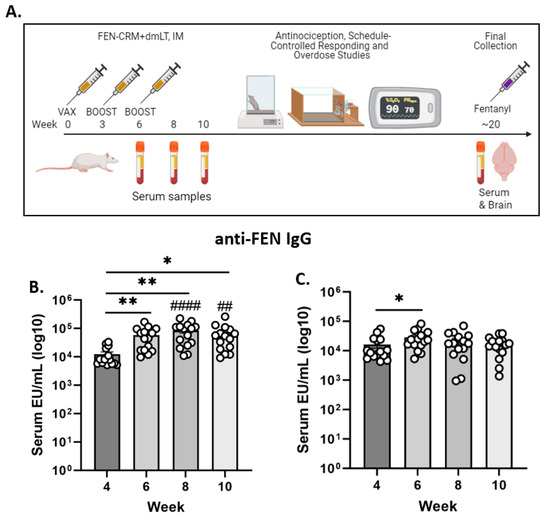この新しいアプローチは、マウスの血液脳関門を越えて抗がん剤を効果的に送り込み、生存率を高め、いつか人間の脳腫瘍患者を治療するための潜在的な経路を示すものである。 The new approach effectively delivered anti-cancer drugs across the blood-brain barrier in mice, increasing survival rates and informing a potential pathway for one day treating human patients with brain cancer.
2022-11-16 ブラウン大学
研究チームは、化学結合でつながったアミノ酸の鎖であるペプチドの一種に着目し、膜を通過して組織に浸透する本来の能力を持つペプチドを開発した。研究チームは、このペプチドを改良し、アミノ酸の間にホッチキスを作ることでペプチドを強化・安定化させ、フッ素分子を組み込んだ。この設計により、ペプチドが血液脳関門を通過する能力が向上する。
この新しい技術によって、これまで血液脳関門を通過できなかったために膠芽腫に対して使用できなかった薬剤を、脳腫瘍に対して試験できるようになった。
研究者たちは、前臨床試験(基本的には、ヒトではなくマウスを対象とした臨床試験)を実施した。ペプチドを用いた薬剤を対照とし、大環状バリア透過性ペプチド(M13と呼ばれる)を強化した薬剤を脳腫瘍のあるマウスで試験したのである。その後の実験では、腫瘍細胞を死滅させるのに必要な薬剤の濃度を評価するとともに、マウスの患者に害を与えない方法で、安全なレベルで薬剤を投与する方法を理解するために行われた。それらの変数が検証された後、研究者は治療研究を行った。
その結果、強化された大環状細胞侵入ペプチドM13による細胞死は、主に腫瘍細胞で観察され、脳の健康な領域では観察されなかったことがわかった。
この研究によると、強化ペプチドを投与したマウスの生存率は50%増加した。
<関連情報>
- https://www.brown.edu/news/2022-11-16/glioblastoma
- https://www.sciencedirect.com/science/article/abs/pii/S0168365922007295
Pt(IV)結合脳浸透性大環状ペプチドの神経膠芽腫に対する前臨床試験での有効性の確認 A Pt(IV)-conjugated brain penetrant macrocyclic peptide shows pre-clinical efficacy in glioblastoma
J.L.JimenezMacias,Y.C.Lee,E.Miller,T.Finkelberg,M.Zdioruk,G.Berger,C.E.Farquhar,M.O.Nowicki,C.-F.Cho,B.I.Fedeles,A.Loas,B.L.Pentelute,S.E.Lawler
Journal of Controlled Release Available online: 4 November 2022
DOI:https://doi.org/10.1016/j.jconrel.2022.10.051

Abstract
Glioblastoma (GBM) is the most aggressive primary malignant brain tumor, with a median survival of approximately 15 months. Treatment is limited by the blood-brain barrier (BBB) which restricts the passage of most drugs to the brain. We previously reported the design and synthesis of a BBB-penetrant macrocyclic cell-penetrating peptide conjugate (M13) covalently linked at the axial position of a Pt(IV) cisplatin prodrug. Here we show the Pt(IV)-M13 conjugate releases active cisplatin upon intracellular reduction and effects potent in vitro GBM cell killing. Pt(IV)-M13 significantly increased platinum uptake in an in vitro BBB spheroid model and intravenous administration of Pt(IV)-M13 in GBM tumor-bearing mice led to higher platinum levels in brain tissue and intratumorally compared with cisplatin. Pt(IV)-M13 administration was tolerated in naïve nude mice at higher dosage regimes than cisplatin and significantly extended survival above controls in a murine GBM xenograft model (median survival 33 days for Pt(IV)-M13 vs 24 days for Pt(IV) prodrug, 22.5 days for cisplatin and 22 days for control). Increased numbers of γH2AX nuclear foci, biomarkers of DNA damage, were observed in tumors of Pt(IV)-M13-treated mice, consistent with elevated platinum levels. The present work provides the first demonstration that systemic injection of a Pt(IV) complex conjugated to a brain-penetrant macrocyclic peptide can lead to increased platinum levels in the brain and extend survival in mouse GBM models, supporting further development of this approach and the utility of brain-penetrating macrocyclic peptide conjugates for delivering non-BBB penetrant drugs to the central nervous system.

